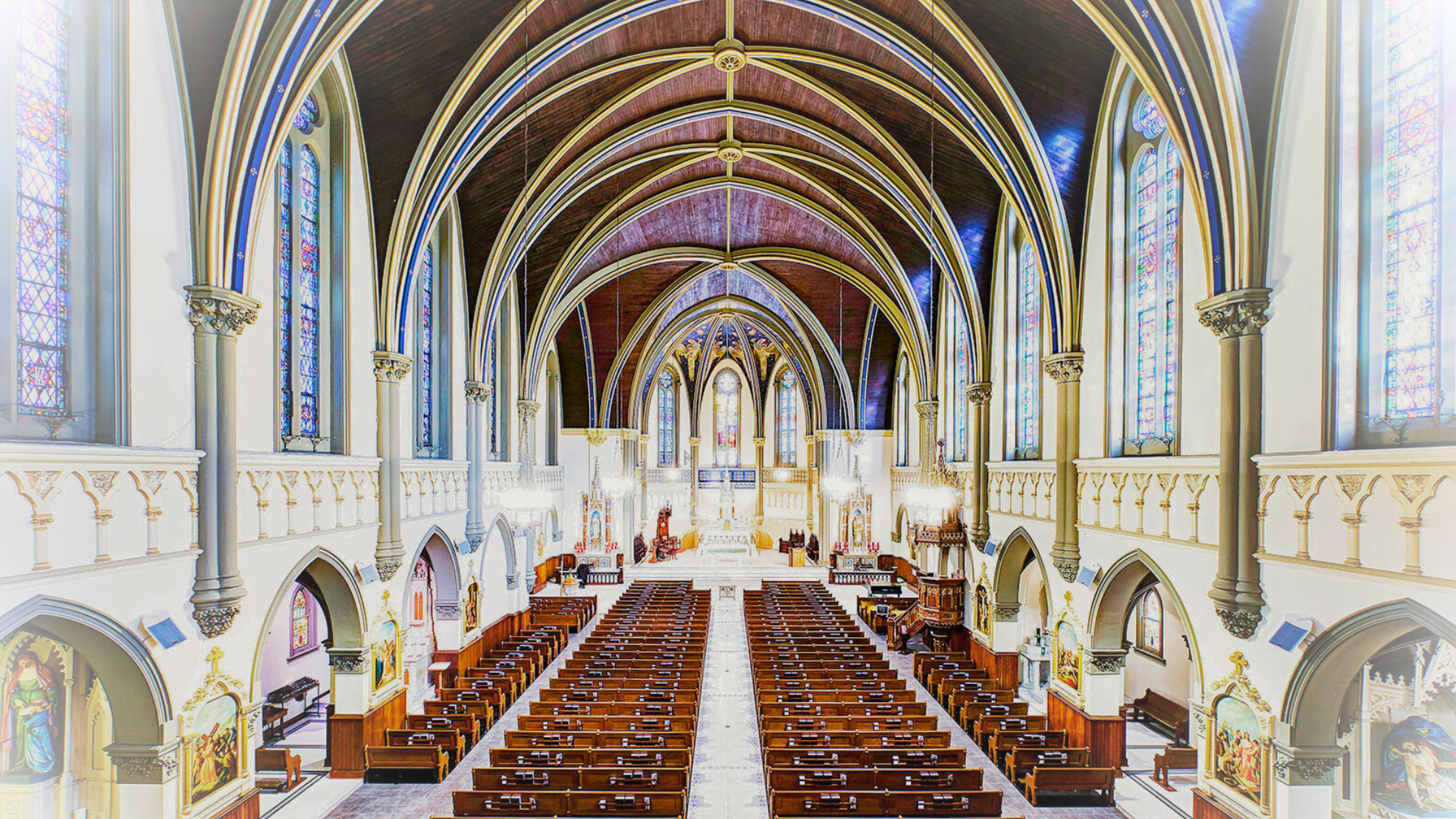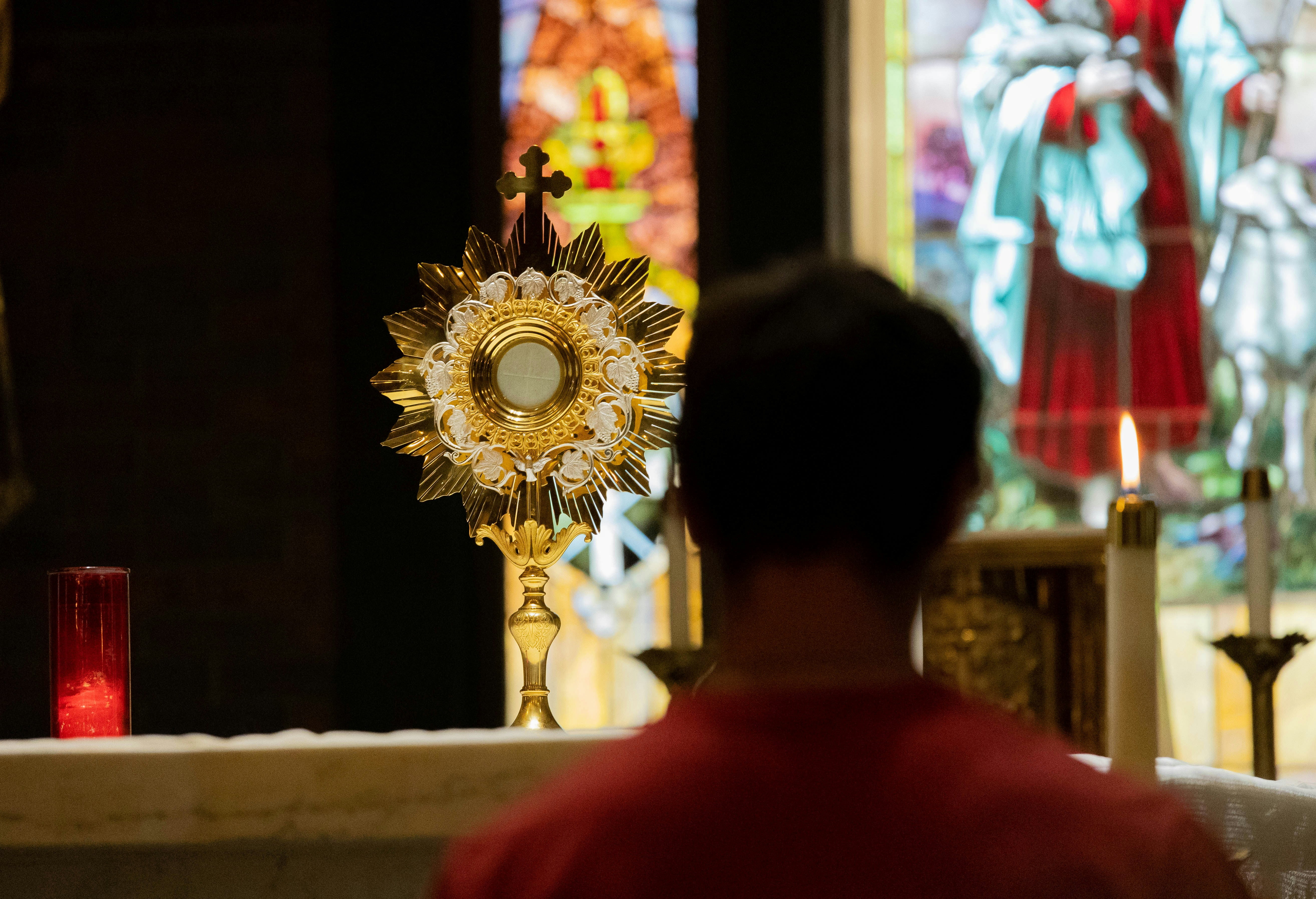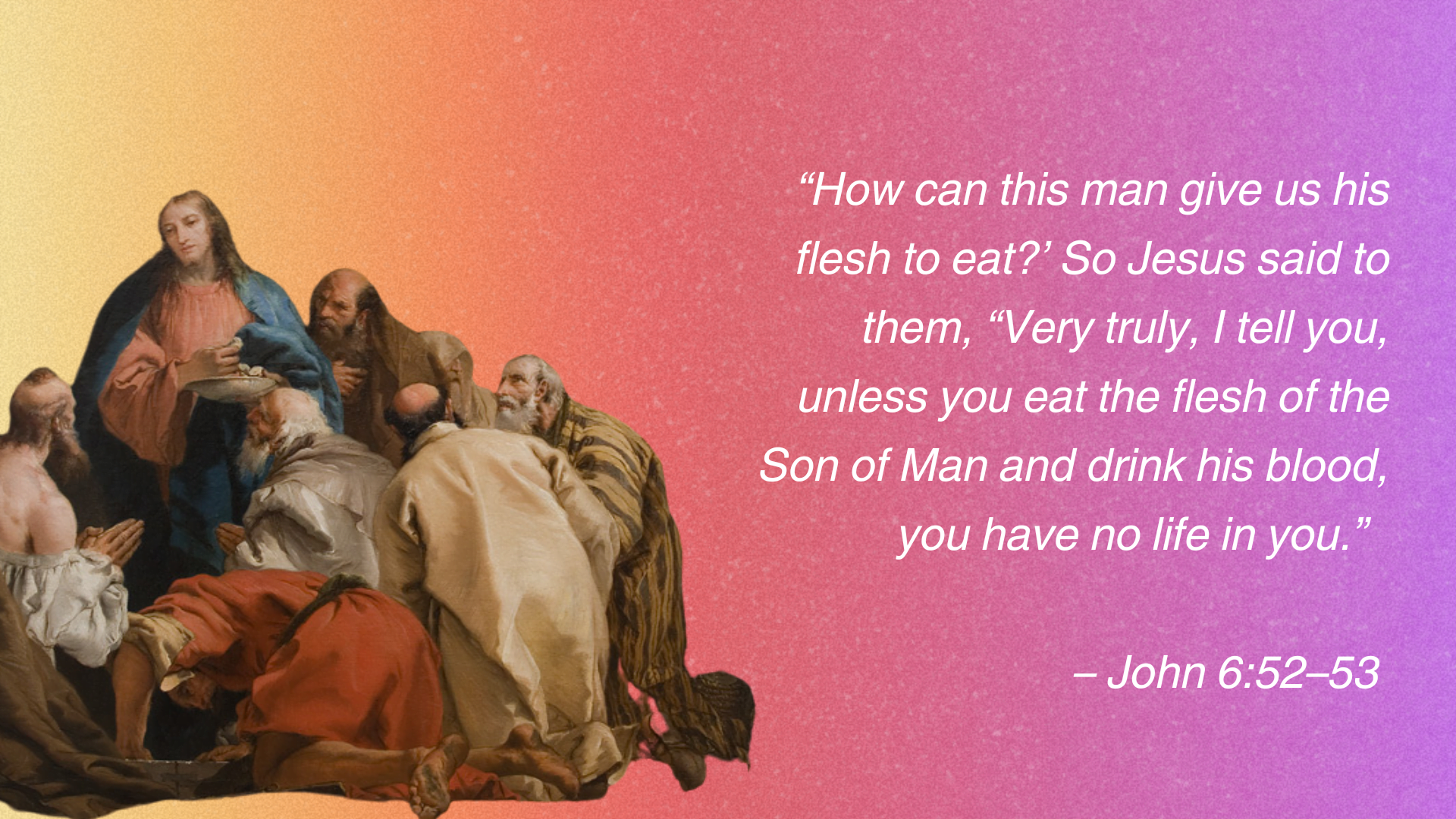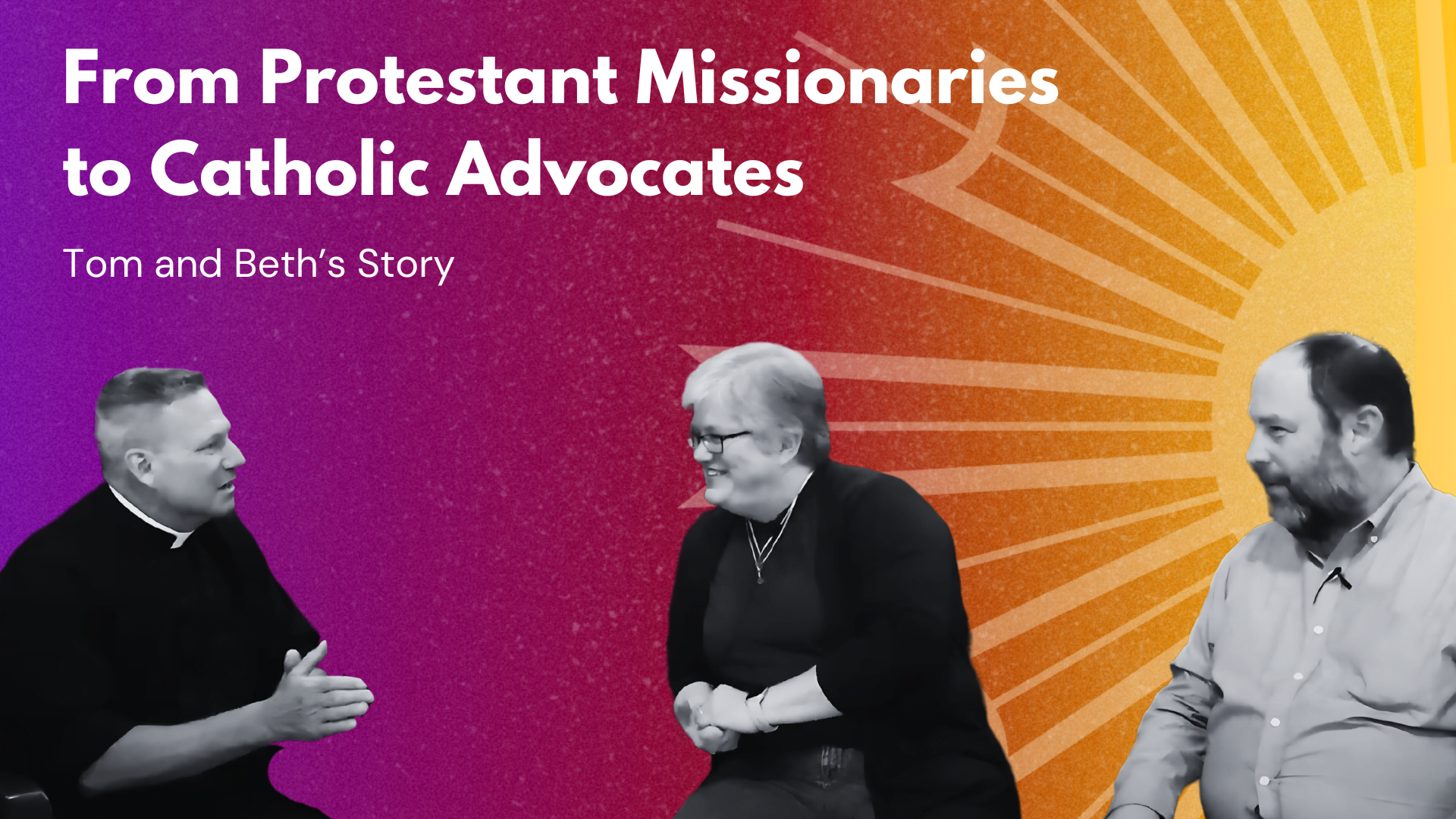Background
Beth and I grew up together in the Presbyterian Church. It was a wonderful experience. We grew up Protestant with a Reformed theology background, and we we learned to love Scripture and church on Sundays. We got our first Bibles in second grade, and knew each other early on from handbell choir.
We started dating in high school, and then I started feeling a pull to serve the Lord going into college. At the end of my high school year, we had a renewal service at church, and I remember praying “You know Lord, I want to serve you, just don’t make me go to seminary.”
Well, as God would have it, as I was approaching graduation, the first phone call I got was to a private Christian school offering a position for an orchestra teacher. I learned that one of my college professors knew I was Christian, and had recommended me. An answered prayer! I could now work full-time in a Christian vocation and teach music and not have to go to seminary.
Beth started working at Lily at that point as an analyst chemist, and since then we’ve been married 26 years. I got my job right out of school, and before I graduated, I joined an evangelical missionary organization and traveled to Russia to teach English. We would go for about three weeks in the summer.
Call to Missionary Work
In that interview for the teaching position, I remember blurting out how the Lord might be calling me to full-time international mission. The principal, Mary Jane English, was gracious and said “you can do this for 5 years and we will pray and help you discern what God wants you to do.”
Five years later, on the first day of school, I walked into her office and told her I’d be resigning. She burst into tears. She knew that I would be resigning at the end of that year. Beth and I made the move to work full-time in international missions, helping teach English and using that as a way to teach the Gospel. This work brought us into contact with countries that were predominantly Catholic or Orthodox.
In our mission work, we had to explain why we wanted them to join our Evangelical Church as opposed to their national church. During this time, I became anti-Catholic. I had talking points of why someone should be Protestant Evangelical instead of Orthodox or Catholic. I set out to prove the Catholic Church wrong, which had big theological differences. Challenged by these other Christian faiths, my interest in theology grew.
I had grown up in a world where we had to memorize and devote ourselves to Scripture. However, I had never considered a philosophical and theological reasoning behind our beliefs. It seemed like a logical next step in our faith. I realized I needed more training, and pursued a Master’s degree in Seminary.
After our time in missionary work, we settled in Greenwood, Indiana. I got a job at an Evangelical church as a music director while taking classes at a Protestant seminary, Trinity Evangelical Divinity School. Beth secured a job at Eli Lily.
Encountering Different Beliefs
Settled in Greenwood, Beth and I decided to host a couple exchange students. Due to our connections from missionary work in Russia, we hosted a Russian-speaking kid from Ukraine. We also hosted another student named Pedro. He was from Brazil and a Catholic.
We started sending him to a private Evangelical school and he came home one day with some interesting questions. “Do you Christians believe in being good people?” he asked. “Of course we do!” I responded. He explained that someone at school asked him if he knew he was saved or if he died that day, where would he go. Pedro said “Well I’m a good person” and was told that’s the wrong answer. He was told that he should say “I’ve been saved because I’ve accepted Jesus Christ as my personal Lord and Savior.”
This was very confusing, and it got me thinking differently about the terminology we use as Protestants. How do we express the fullness of salvation? I sought the Catholic answer to Pedro’s hypothetical question. However, the only people I reached out to were ex-Catholics in our church, and they all said that Catholics believe you have to work your way into heaven. I was determined to find out the real answer.
Questioning Catholicism
Seeking deeper answers, I dove into Church history. Beth and I began reading about the early Church, and one of the most important books was “Documents of the Christian Church.” It contains the Didache — the early instructions of the Apostles themselves, along with other parts of early treatises that the Christians were writing against various heresies. They talked about the Eucharist in a very specific way, which fascinated me. We had a particular exchange student during this time, a Catholic boy named David from Spain, who missed going to Mass while we attended our Evangelical church service.
One day he asked if I could take him to Mass. After our service ended, we drove to St. John the Evangelist Catholic Church, in downtown Indianapolis. We snuck in the back, hoping that no one would see us. It’s funny, the first couple Sundays I was nervous that people would realize I wasn’t Catholic, as I didn’t know the prayers or when to sit, stand, or kneel.

Interior of St John the Evangelist Catholic Church, in downtown Indianapolis
The first sermon left me surprised. I heard Fr Rick talk about having a personal relationship with Jesus. Here was a Catholic priest talking, at least from my point of view, like an Evangelical!
“He’s in the wrong church” I thought. I’d never heard a Catholic talk like that. The next time we went, Beth came, and Fr Rick’s homily was about how the Lord brought him back into a relationship with the Church. It was not what we expected at all. Later on, one of my seminary classes in Church history had us visit a different denominational churches, so I once again decided to go back to St. John’s.
The Eucharist was especially interesting to us. We had communion in the Presbyterian church of our youth, but the way that Fr Rick presented and talked about it was very different than what we grew up with. He left a lasting impression that made us consider the truth of the Eucharist.
Shortly after that, our exchange student, David, got us a book by Bishop Robert Barron called “Catholicism.” I started underlining passages, once again because so much of it was about a personal relationship with Jesus. Did Catholics really believe in having a personal relationship with Jesus?
The answer was a resounding yes. And, no greater personal relationship could come then through the Holy Eucharist — the Body, Blood, Soul, and Divinity of Jesus.
Challenging Protestant Assumptions
On day, I’m sitting in our church office when one of the associate pastors pops in. He had been helping do our membership class, and shared a question he received. “What do we believe about the nature of communion?”
I knew we didn’t have the Catholic or Lutheran beliefs, and I became curious about the other viewpoints. Evangelicalism had different branches with different viewpoints, and I began seriously questioning why we didn’t agree with the Catholic position. It felt like another one of many Providential nudges — people being placed in our lives and questions being asked that made us consider Catholicism.
Our Evangelical church believed that communion was completely symbolic, done out of obedience because Jesus told us to. However, now we realized that this was just one of multiple competing views on the Eucharist. Later than evening, Beth and I discussed these questions. Beth recalled her struggle, observing:
“I’m an analytical chemist, and don’t tolerate two things that are mutually exclusive, both being true. That’s not something that can happen, it’s logically not possible. If there are four views of communion, one of them has to be right and the others have to be wrong — because they don’t agree.”
We lived with this diversity of thought for awhile, as it’s everywhere in the Protestant world. But living with something with multiple truths became intolerable. We started studying our tradition and sought to confirm its validity.

Challenging Catholic Belief on the Eucharist
First, I sought to debunk Catholic transubstantiation. I was sure that it was a medieval, made-up concept to fool the masses. I thought it was a way the Church could control people and make them loyal to the Church. I also thought Thomas Aquinas made up the term “transubstantiation,” so I ignored his writings and went further back than him to the early Church. I read the writings of the early Christians, but found them talking about the bread and the wine as the actual Body, Blood, Soul, and Divinity of Christ.
Within the first two centuries of the Church, I wasn’t seeing the word “transubstantiation,” but the meaning of it was everywhere — that the bread and wine were truly Jesus.
When Beth and I realized this, we had a difficult decision to make.
If this was true, I’d have to quit my job as a Protestant pastor.
Being a pastor after my seminary education had been my identity. For a lot of people, I was Pastor Tom. Additionally, I was going to lose my livelihood, my identity as a Christian (as I knew it). When we decided to start RCIA (Rite of Christian Initiation for Adults), I had to talk with my senior pastor and break the news. I told him that Beth and I wanted to take some RCIA classes, and if doing so would be a conflict of interest. He was actually very kind, and said if that was where God was leading us, we should follow it. So we did, and went through the RCIA process and are now confirmed in the Catholic Church.
As new Catholics, receiving Jesus fully — Body, Blood, Soul, and Divinity — is the most intimate connection with Jesus we can experience. Not only do I have Him in my heart, but I’m taking Him into my very soul.
I can’t tell you the number of times that I’ve come into church with a particular prayer burden or ailment, and after receiving the Eucharist and spending time in prayer, it just evaporates. It’s Jesus being like “Hey I’m going to work this out, I’m going to take care of this.”
One of my favorite early Church Fathers, St Justin Martyr, has this beautiful writing where he says that when we consume normal food in our body, we metabolize it to become part of us. But when we receive the Eucharist, it’s in fact Jesus who metabolizes us, and we become more like Him. That’s exactly why the Eucharist is such a gift.

A piece of advice I’d say to those who choose to stay away from Catholicism, or those who aren’t convinced by it, is to simply come to Mass.
If you’re not Catholic or are non-practicing, you shouldn’t go up and receive the Eucharist, but just start coming and ask the Lord to help guide you. He’s there in the tabernacle, and as you spend time asking the Lord to reveal that to you, the Holy Spirit will draw you in and start putting people in your life to help encourage you.
If you’ve fallen away from the Catholic faith, just find a church that has Adoration and pray before Jesus in the Blessed Sacrament. He will come to you — and the Scriptures promise this — if you seek, you will find. Finally, read and meditate on John Chapter 6, which is the Bread of Life discourse, Jesus’ teaching on the Eucharist.
As the disciples say in John 6:68 “Lord, to whom can we go? You have the words of eternal life.”

Disclaimer: This is a revised and condensed version of the original podcast transcript for storytelling purposes. You can listen to the full podcast to hear the complete, unedited conversation and story here.



